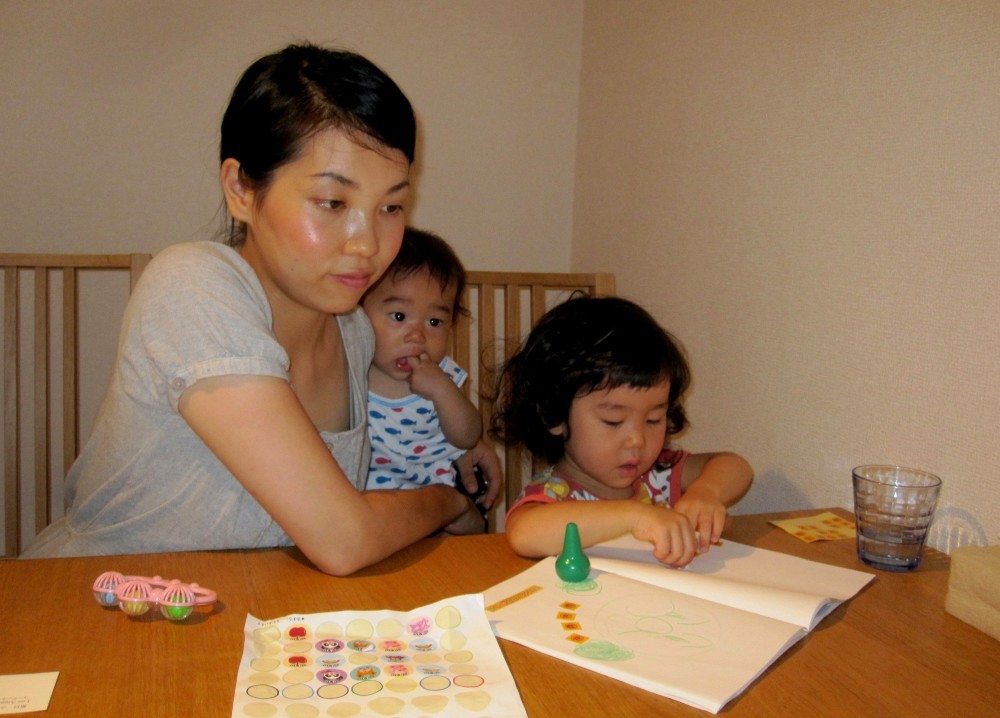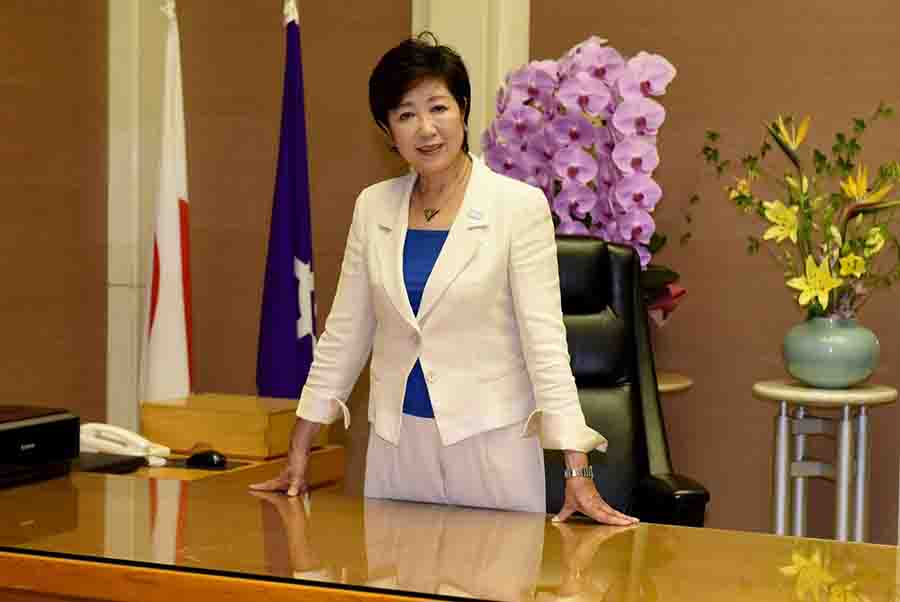By Kazuaki Nagata
Japan Times, Tokyo
In an era of smartphones, some mobile video game makers are using love to expand overseas.
Having created a niche market for romance-themed games for women in Japan over the past several years, now they are looking to woo foreign women, particularly attracted to anime and manga.
In romance games for women, the player is generally the lead character and navigates a field of handsome young men around whom her romances revolve.
The characters are often drawn in glamorized anime style. The plots, however, vary greatly, ranging from heroines mixing it up with princes in castles or princesses in ninja clans flirting with good-looking ninja warriors.
Although these are widely marketed as games, they are similar to graphic novels, with the players “reading” to the end to find out what will happen to their amorous adventures.
“At first, we weren’t quite sure if this would be successful (overseas) . . . but the theme is romance, which is universal.
We watch love story movies from Hollywood, too,” said Akihiro Yokota, CEO of Voltage Inc., a Tokyo-based maker of mobile video games.
Before the smartphone boom, Voltage had turned out many romance-themed game titles for the local market, which it’s been cultivating since 2006.
According to its own surveys, 1 in every 5 females who plays games on their cellphones has played a romance game.
In July 2011, Voltage translated one of its titles into English, localized some of the characters and started selling it in other countries. Since then it has released 24 original and translated titles, including a French version.
Thanks to the rapid spread of Google’s Android OS and Apple’s iPhones, both of which run globally accessible app stores, it is not difficult to distribute games overseas anymore, Yokota said.
Some of the English titles are proving popular. For instance, “Dreamy Days in West Tokyo” has topped the entertainment rankings of Apple’s App Stores in Singapore and the United States, while “10 Days with My Devil” has been in the top 10.
Voltage has rivals in Japan, but none is apparently foreign, he said.
Underlining its commitment to foreign markets, Voltage established a subsidiary in San Francisco in May 2012 to develop romance games for the North American market.
“It’s not that we have a clear vision for making a profit there, but we want to try cultivating that market,” Yokota said.
Plus, “to create U.S.-original contents, I thought we would need input from the American people,” Yokota said.
One example of a game aimed at U.S. players is “Speakeasy Tonight,” which is set in 1920s Chicago. The Prohibition-era story places its heroine in the city’s then-illegal bars.
While the characters in games designed for Japanese are drawn in a glamorized way, characters for the North American market are depicted more realistically, which Voltage said was a cultural tweak for the foreign version.
Voltage is also producing translated versions without character modifications for those who want to play the original Japanese game in their own language.
Yokota said the main driver of good games is story quality.
Voltage mainly uses two business models to sell romance. The first is the e-book-like model, where you pay up front and read the stories as you like. The second has more of a gaming aspect and allows players to purchase items that allow them to play the game faster. It also allows them to build avatars and pay money to decorate them.
Voltage is not the only one looking to spread this niche content overseas.
“Romance games have many elements of Japanese anime and manga, so we thought that the games could become popular in the overseas markets,” said Masayuki Fujikata, who oversees the romance game business for overseas markets at NTT Solmare Corp.
Unlike Voltage, which has created an overseas base and produces games especially for foreigners, NTT Solmare only translates existing Japanese games into English, with all production carried out in Japan.
The firm has released 13 titles overseas and many take place in Japan’s most famous historical periods, with samurai and ninja, of course, in the main roles. These include “Shall we date?: Ninja Love+” and “Shall we date?: Mononoke Kiss.”
NTT Solmare started developing romance games in 2011 to develop a new source of revenue. Its main business is selling e-books, specifically manga, for cellphone users. Its primary customers are women in their 20s and 30s.
The company wanted to take advantage of that combination of assets — manga and young women — so it decided to enter the romance game market, Fujikata said.
Fujikata said the essentials to making good games are stories and illustrations, adding that NTT Solmare’s experience dealing with manga allows it to tell the good from the bad.
He also said the market for romance games for women has the potential to grow overseas, although it will be a very niche market.
“We have been releasing titles, and we are starting to get some reaction,” Fujikata said.
Since not all women who like manga and anime know this kind of game even exists, there is still more upside to this market, he said.

















































































































































































































































































































































































